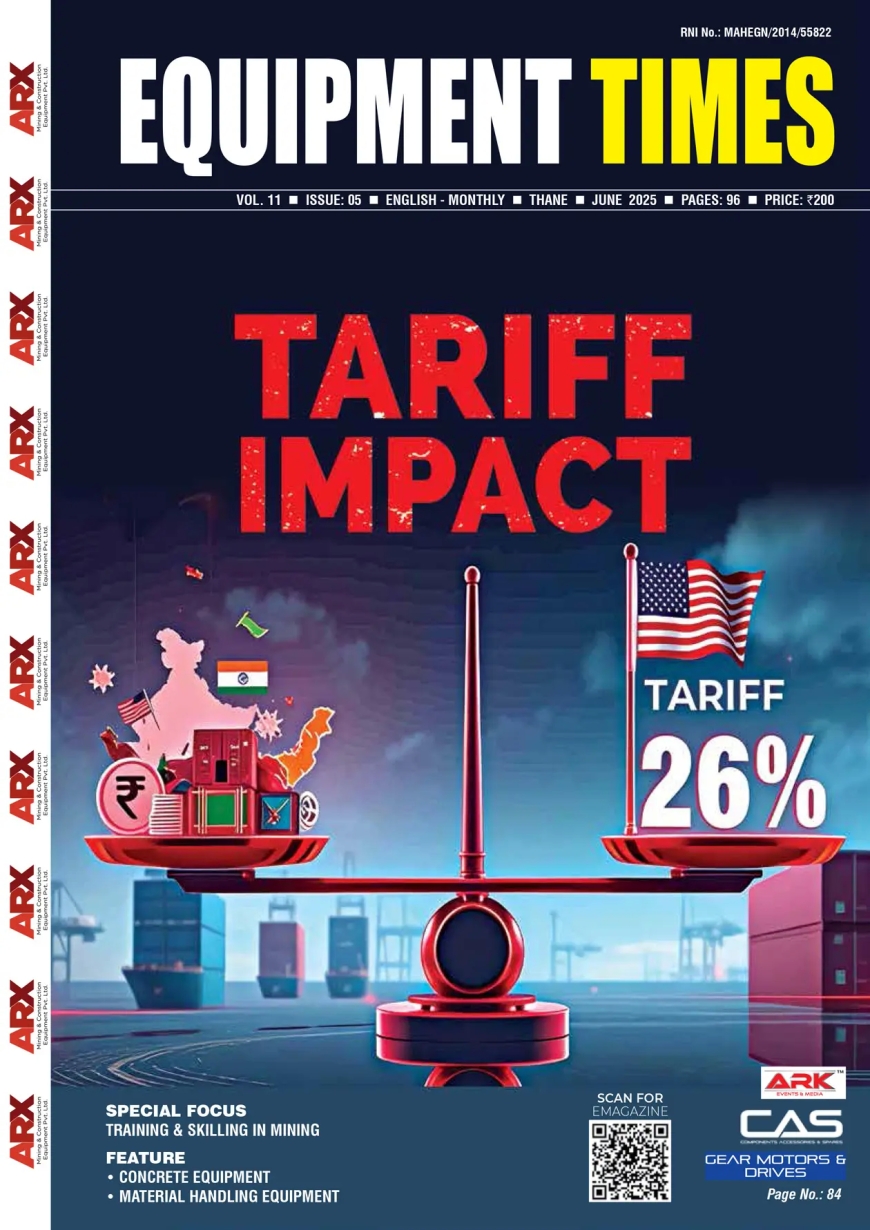At TIL Limited, we strongly believe that genuine workplace inclusion transcends mere policy
The role of women in the construction equipment industry is evolving significantly as organisations recognise the value of a diverse workforce.

Shamita Nandi
Chief Human Resource Officer, TIL
How do you see the role of women evolving in the construction equipment industry?
The role of women in the construction equipment industry is evolving significantly as organisations recognise the value of a diverse workforce. While currently women make up only about 20% of the manufacturing workforce in India, we’re witnessing a positive shift. As the sector expands and the demand for skilled workers grows, women are increasingly taking on roles traditionally considered male-dominated, including positions on factory floors and as service engineers.
At TIL Limited, we’re seeing women entering the workforce and taking leadership positions that influence company direction and policy. This evolution is driven by changing industry perspectives recognising diversity as a catalyst for innovation and productivity. Research shows that diverse teams drive better business outcomes, increase innovation, and adapt more quickly to new technologies – all critical factors in the era of Industry 4.0. As manufacturing becomes more technology-driven with the integration of robotics and digital systems, the physical barriers that may have limited women’s participation are diminishing, creating new opportunities across all operational areas.
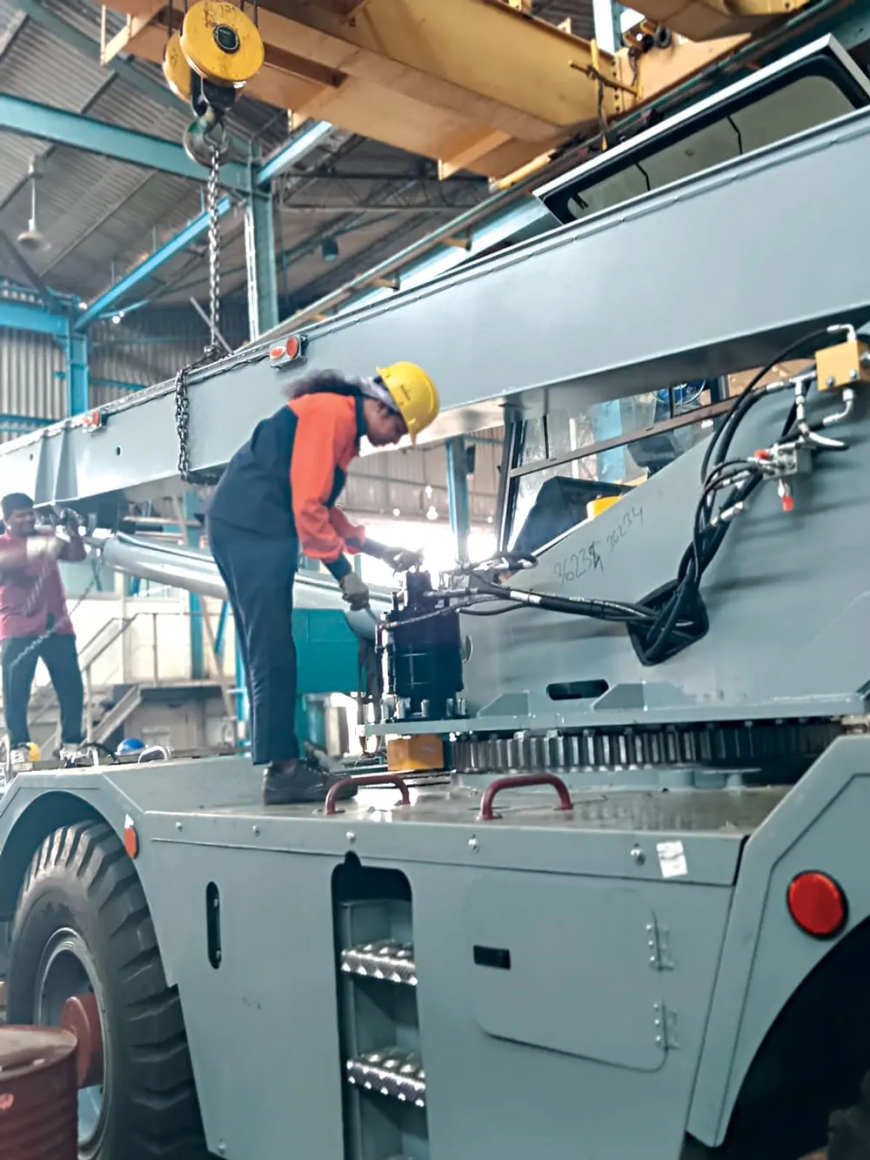 What are the key challenges women face in this traditionally male-dominated sector?
What are the key challenges women face in this traditionally male-dominated sector?
My individual experience as I advanced to leadership roles, I realized that while being appointed as a woman leader grants a seat at the table, being heard remains a challenge. Navigating this landscape required resilience, strategic communication, and an unwavering belief in my capabilities. Overcoming these challenges has strengthened my resolve to advocate for inclusive environments where every voice is heard and valued.
Women in the construction equipment industry face several significant challenges that have to be addressed systematically through policy and cultural changes. Many manufacturing facilities lack basic amenities for women including hygienic washrooms, restrooms, and appropriate changing facilities. Factory floors and workstations are traditionally designed with male physical attributes in mind, creating ergonomic challenges for women operators. Limited flexibility and support systems like childcare facilities make it difficult for women to balance professional and personal responsibilities. Deeply ingrained perceptions about “appropriate roles” for women limit opportunities in field operations, service engineering, and industrial relations. Workplace safety, particularly during shift work and transportation to and from facilities, remains a significant concern. The lack of women in leadership positions means fewer role models and mentors for women entering the industry. Additionally, limited access to technical training and apprenticeship programs specifically designed for women creates skill gaps that hinder advancement opportunities.
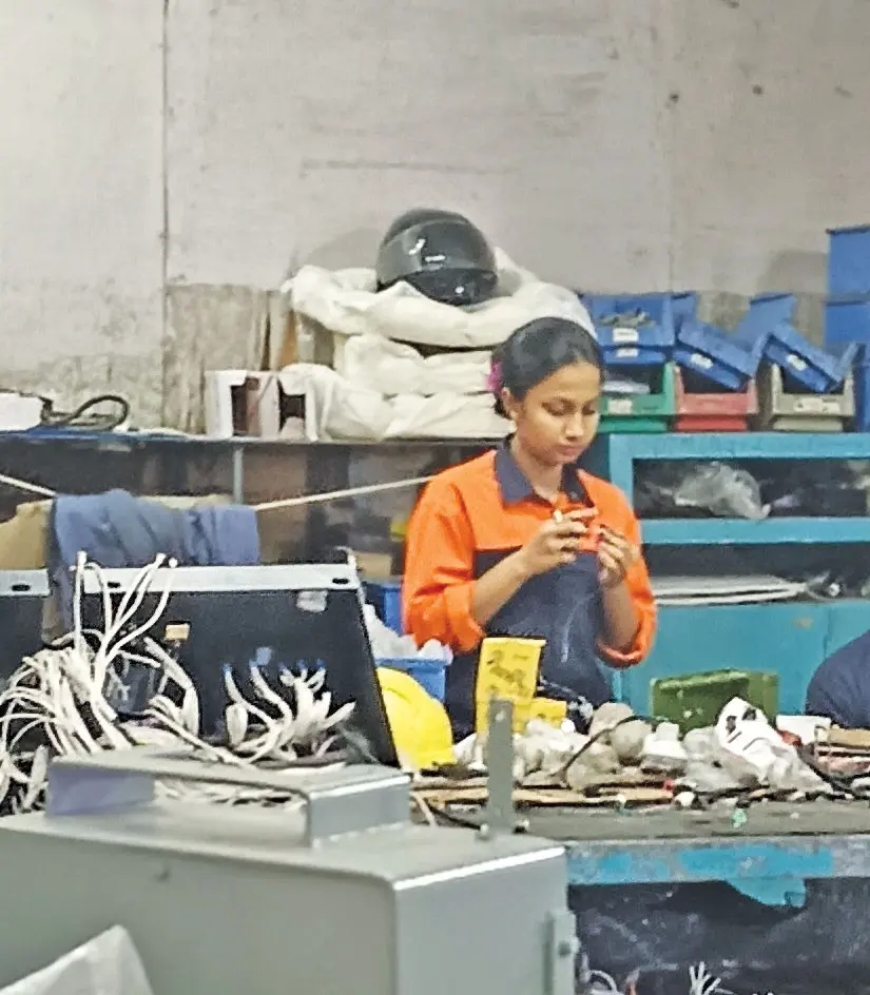
What steps has your company taken to promote gender diversity and inclusivity in the workforce?
At TIL Limited, we strongly believe that genuine workplace inclusion transcends mere policy. Thus, we aim for a holistic, long-term strategy that empowers employees to bring their authentic selves to work. This embeds inclusion deeply within the organisational culture. Our senior management has made a formal pledge to create a more gender-diverse and sensitive organization, ensuring physical and psychological security for colleagues of all genders. We’ve invested in creating appropriate facilities including hygienic washrooms, restrooms, and pick-up and drop facilities to support women in the workplace. We’ve developed a diversity, equity, and inclusion blueprint that aligns with our business strategy to ensure sustainable progress. Additionally, we regularly conduct sensitization programs to address unconscious bias and create a culture of inclusivity throughout the organization.
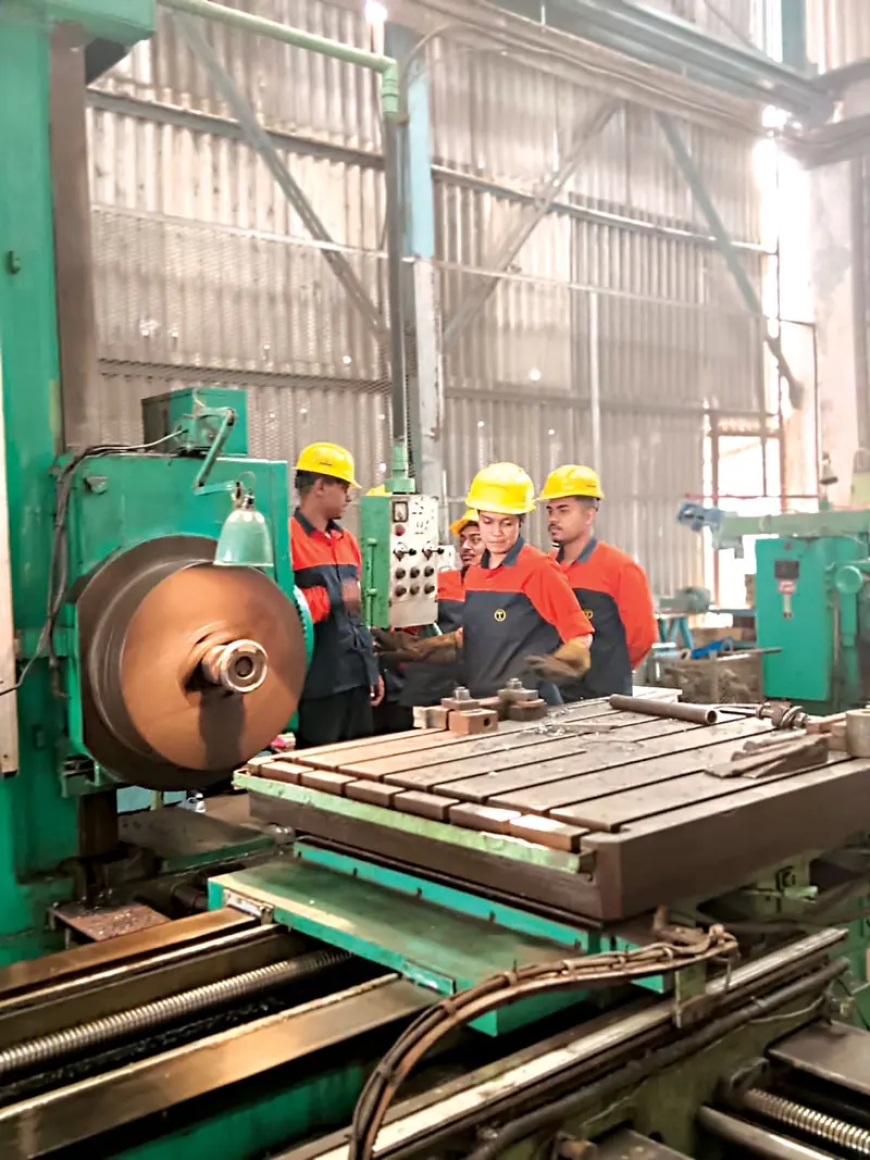
Can you share details about any specific policies or programs aimed at recruiting, retaining, and upskilling women in your company? How do you address skill gaps and ensure equal career growth opportunities for women?
At TIL Limited it is a conscious decision to have a more diverse organisation. Our recruitment efforts include partnerships with technical institutes to identify and recruit women engineers and technicians. Our upskilling approach features women-focused apprenticeship programs that provide hands-on training within our plants, technical skill development programs specifically designed for women employees, and leadership development initiatives to prepare women for management roles. In the pipeline we are working on a program to address skill gaps through targeted training programs focused on preparing women for field roles, particularly as service engineers where there’s a significant shortage.
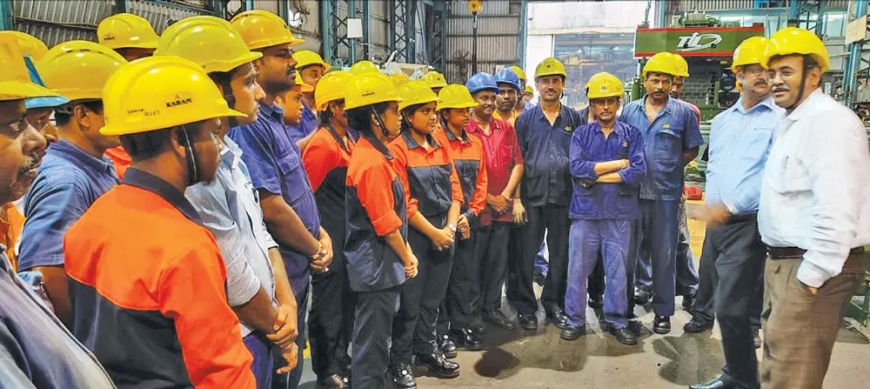
What are your recommendations for policymakers, industry leaders, and educational institutions to create a more inclusive workforce?
While recent trends show an improvement, India still ranks low in global gender parity indices. Bridging this gap isn’t just about equality. Addressing workforce inclusivity requires coordinated efforts across multiple stakeholders to create lasting change. Policymakers play the most important part by boosting the agenda through various plans and platforms. Vikshit Bharat, Support to Women Entrepreneurs, Skill India and many such programs are already targeting the same.
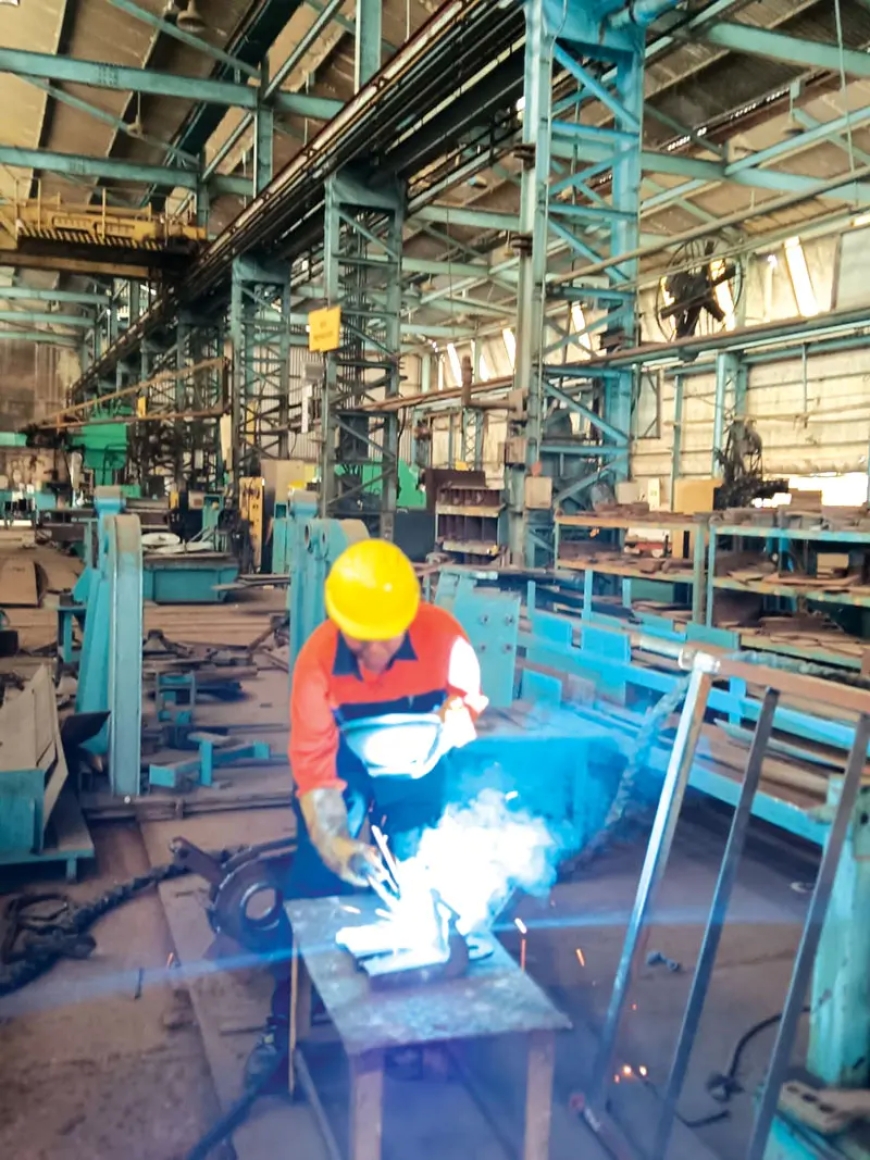 Educational institutions serve as a bridge for individuals transitioning from student life to professional careers. Therefore, they should play a more active role by redesigning technical curricula to be more inclusive, addressing gender stereotypes, and developing industry-aligned training or internship programs. Greater exposure and more role models are needed to inspire students to pursue careers in the industry.
Educational institutions serve as a bridge for individuals transitioning from student life to professional careers. Therefore, they should play a more active role by redesigning technical curricula to be more inclusive, addressing gender stereotypes, and developing industry-aligned training or internship programs. Greater exposure and more role models are needed to inspire students to pursue careers in the industry.
Industry leaders are already pitching in and must continue with their commitments to diversity with measurable targets and accountability. These multi-faceted recommendations aim to create systemic change by addressing barriers at multiple levels and leveraging the unique capabilities of different stakeholders to create a more inclusive workforce in the construction equipment industry.
Would you like to add any further insights or suggestions on women empowerment in the construction equipment industry?
In the journey toward inclusivity, simply increasing workforce diversity is not enough. Organizations must actively cultivate a culture that fosters organic bonds and genuine collaboration. True inclusion means ensuring that every individual feel valued, empowered, and heard. HR strategy plays a pivotal role in this.








